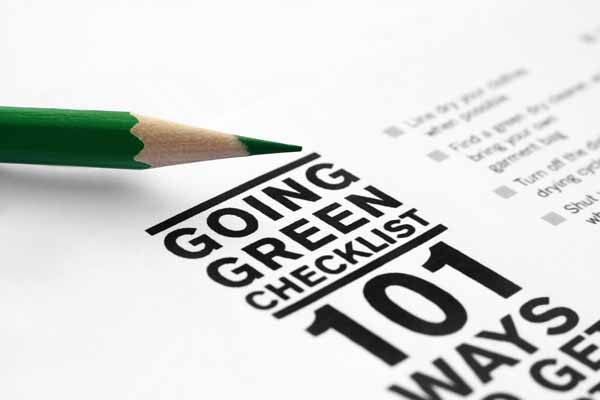Boston North Shore home improvement trends are focusing more on eco-friendly options. The good news is that homeowners don’t have to be sustainable home experts. By consulting the proper resources and using knowledgeable, trained installers we can all become better stewards of the environment.
Boston North Shore Home Improvement: Energy Efficiency
Many homebuilding and remodeling experts say that energy efficiency and sustainable home ideas are not just a passing fad anymore. They’re here to stay. Whether you’re considering building a new home or improving your existing home, environmentally friendly, energy efficient housing is expected to be more popular. This is especially true among Millennials, both now and as they get older and start to move up into larger or newer homes.
Here are a few tips for “going green” as you plan your Boston North Shore home improvement project:

Make a Plan. Green builders use the term, “net-zero” when describing the goals of new home construction or improvements to existing homes. A net-zero home is one that is ultimately capable of producing as much energy as it consumes. Homeowners that aren’t willing or able to totally commit to net-zero goals can make plans for it at a later time.
For example, homeowners may elect to take advantage of solar energy in the future even though they may decide not to install solar panels now. Green builders suggest homeowners begin in the design phase by positioning their home or home addition to the south. This will allow the home to capitalize on the sun’s rays throughout the year. In addition, install a solar conduit and solar meter on your home. It will be easier and more efficient to add solar panels and “go solar” in the future.
Environmental construction experts also recommend using the services of a certified home energy rater or energy consultant to assist you in developing your home’s plans, specifications and sustainability goals. One tip green builders say you should consider if you’re building a garage, for example, is to install a car charger for electric cars. The cost is around $250 and by doing it now you’ll avoid the inconvenience and potential greater expense of adding it later.
Seal Your Home. One of the keys many green builders recommend for Boston North Shore home improvement or new construction is air-tightness for your home. For home treatment, for example, they are using a spray-on fluid membrane applied on the exterior walls instead of the traditional house insulation wrap covered by siding. The new weather-resistant barrier system is applied by spraying and/or rolling a substance having the appearance of black rubber paint. Green builders say the material seals “every nook and cranny” from the outside, making the house airtight. The barrier is permeable or breathable, yet it prevents moisture. The result is a combination of airtightness and comfort. Perhaps one of the best features of this new eco-friendly process is that it usually can be completed in a day, making your home completely sealed, airtight and waterproof.
Use Materials Found Locally or Regionally. When you use building materials that are found or sourced locally, you’re not only supporting local business you’re reducing the amount of energy required to transport materials from out of state. One green builder refers to this practice as “farm-to-table construction,” and gives this tip. Ask about old trees in need of removal. They could provide low-cost raw materials.
Often finding material resources near you is simply a matter of spending a little time researching online or making a few phone calls. Discuss the subject with your builder or home improvement contractor and ask him to try to take advantage of the opportunity locally produced materials provide. It can save time, money and provide a greater sense of environmental responsibility.
Select Eco-friendly Paint Products. You can help the environment when you choose a quality, eco-friendly paint for your Boston North Shore home improvement project. Consider interior and exterior paints with low or zero levels of volatile organic compounds (VOCs.) Volatile organic compounds are considered a leading contributor to air pollution because the chemicals in their composition evaporate as they dry. The chemicals produce a light smog during interaction with sunlight. Environmental experts say when we breathe in harmful carbon-based paint materials, they can be hazardous to our health.
Employ Technology. One of the fastest growing and most popular features in sustainable home building and remodeling is the use of technology. Home automation systems – also known as “smart home technologies” – are allowing homeowners to manage their homes more easily and more efficiently than ever. Climate control systems, smart lighting, security and safety measures are all examples of how technology continues to advance and make substantial improvements to better homes and more energy efficient living.
Spring Into Action. Many homeowners fall into this category. They want to “go green,” but their lack of knowledge about the specifics makes them more than a little intimidated and overwhelmed. If that describes your feelings, consider your personal reasons for making your home more environmentally friendly. Experts say there are two types of homeowners interested in green construction: those genuinely concerned with global climate change, and those who believe eco-friendly steps will improve the health of their family.
Regardless of the motivation, the move toward green Boston North Shore home improvement and construction is happening now. Designing your plans and ideas with green benefits in mind will ensure you are doing your part in becoming more eco-friendly – and environmentally conscious. If we haven’t already, we can all start today
.You can find more articles pertaining to various Boston North Shore home improvement ideas and tips in the Boston North Shore Home Improvements section of our site below Boston North Shore Real Estate Categories in the column to your right.
We also post tips daily on Twitter and Facebook and would love for you to follow us there as well.
